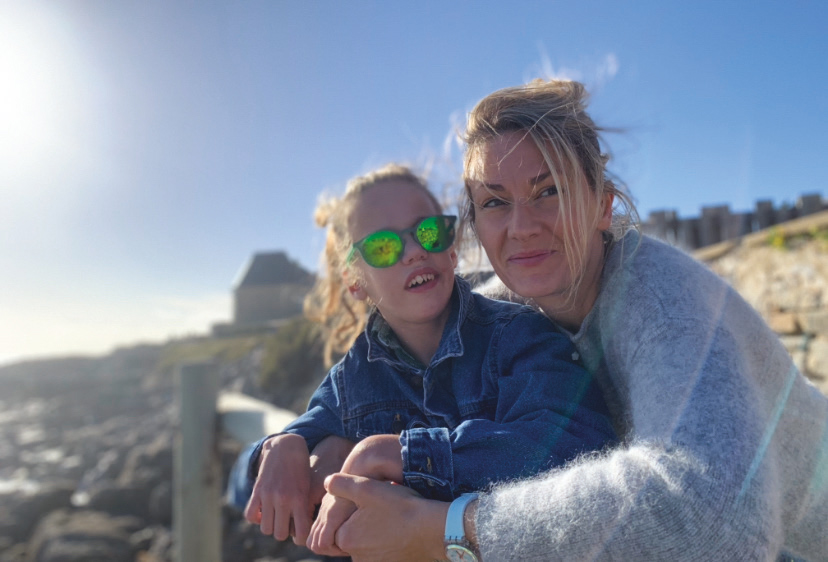The story of Maïa and her parents, “exhausted and devastated to see their little girl lose a little more autonomy every day”.
Maïa was born in April 2009 in Paris. Very early on, our beautiful little girl shows obvious signs of delayed development. We consult different specialists, and Maïa’s father’s worries only grows as the months go by.
From a genetic point of view, the first examinations carried out do not reveal any particular anomaly.
From the age of 1, Maïa has physical therapy, psychomotricity and speech therapy.
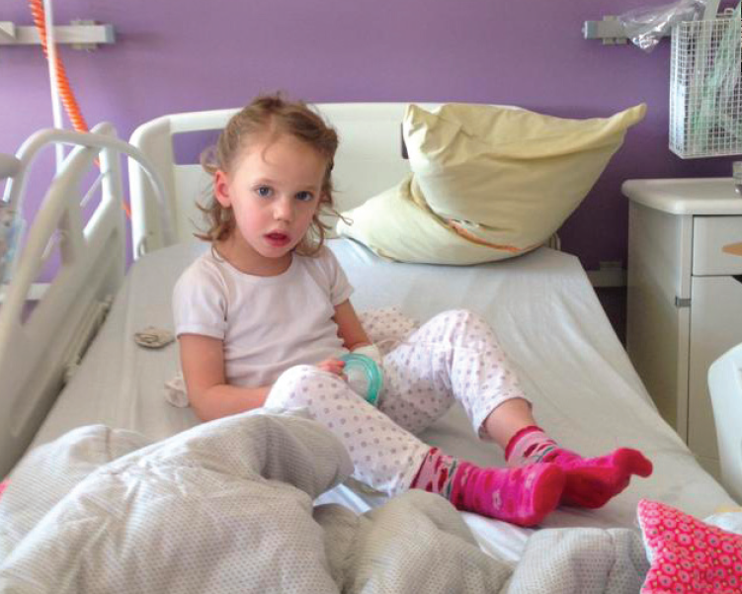
At 2 years old, she does not use her point fingers, nor does she show any particular interest in playing games.
Her attention span is short and progress is slow. Everything leads us to believe that Maïa has an autistic disorder.
Maïa is 2 and a half years old when we leave Paris to settle in Nantes. I stop my professional activity to devote myself to Maïa’s care.
In September 2012, Maïa is 3 and a half years old when she has her first two epileptic seizures.
As the months go by, the seizures become more and more numerous, until they become multi-daily. Maïa convulses day and night. All the tested treatments turn out to be a failure. Maïa does not walk alone anymore. Her instability is more and more important as she grows up. The epileptic seizures lead to a very high risk of falling.
We are exhausted and devastated to see our little girl lose a little more autonomy every day.
The diagnosis
In July 2016, after several years of research, Maïa is diagnosed with a mutation of the KCNB1 gene. After 6 years of diagnostic wandering, we finally put a name to our daughter’s disease.
Once the diagnosis is established and confronted with the absence of treatment for this very rare genetic disease, we decide to approach Institut Imagine, the center of reference for genetic diseases in Europe.
Thanks to the Institut Imagine, we have the strength to move forward and fight.
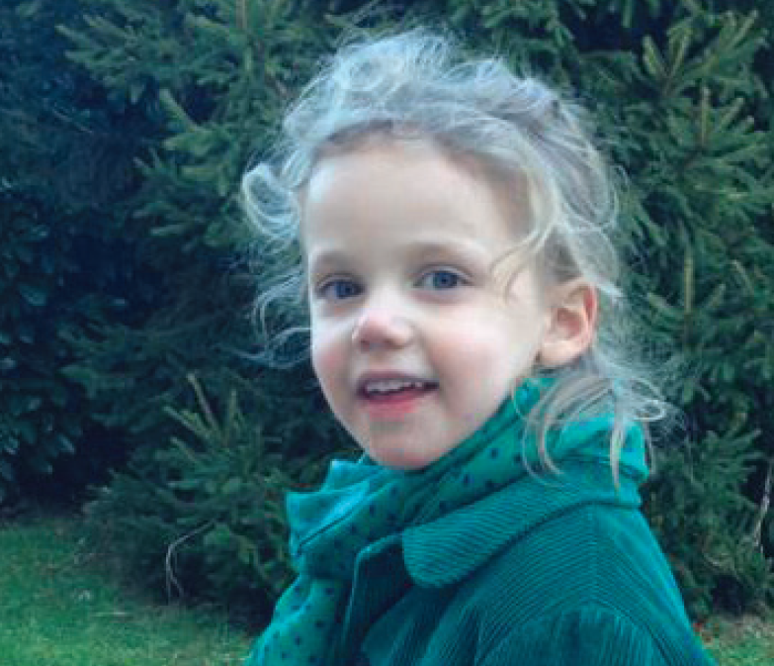
In 2017, we meet Prof. Rima Nabbout, a Neuropediatrician specialized in rare epilepsies, during Maïa’s hospitalization at the Necker-Enfants malades hospital in Paris.
For the first time, in this unique place of research and care for sick children, we have the hope of understanding and, one day, treating our daughter’s disease.
Knowing that doctors and researchers are working daily on our children’s disease is a source of comfort for us and gives us the strength to move forward and fight!
The creation of the KCNB1 France Association
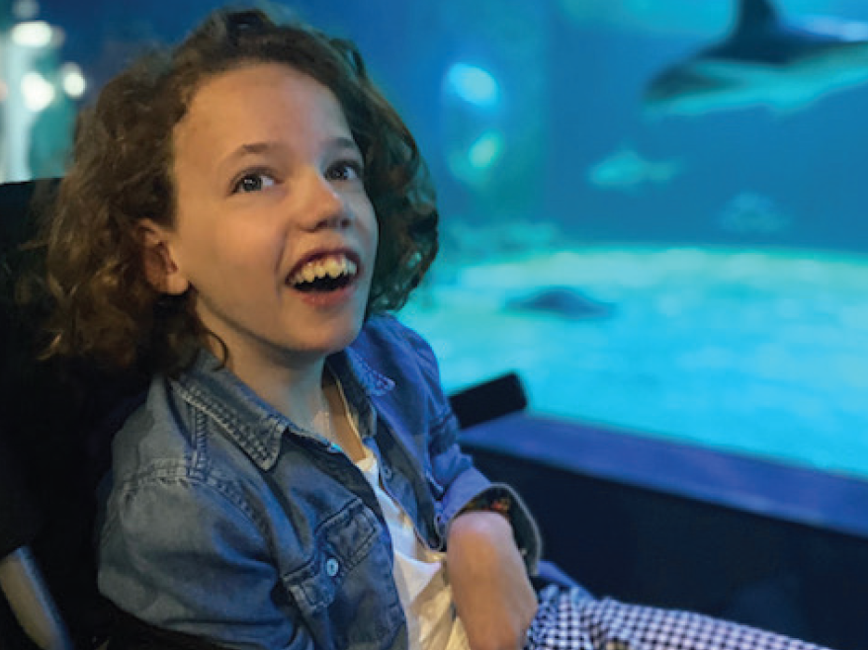
In November 2016, we get in touch with a first French family whose little girl is also a KCNB1 mutation carrier, via an American blog.
In the following months, we are contacted by new French families of KCNB1 patients. After years of medical wandering, in August 2017, we regroup and create the KCNB1 France Association, of which I am the president.
Maïa’s future, “Living day by day”
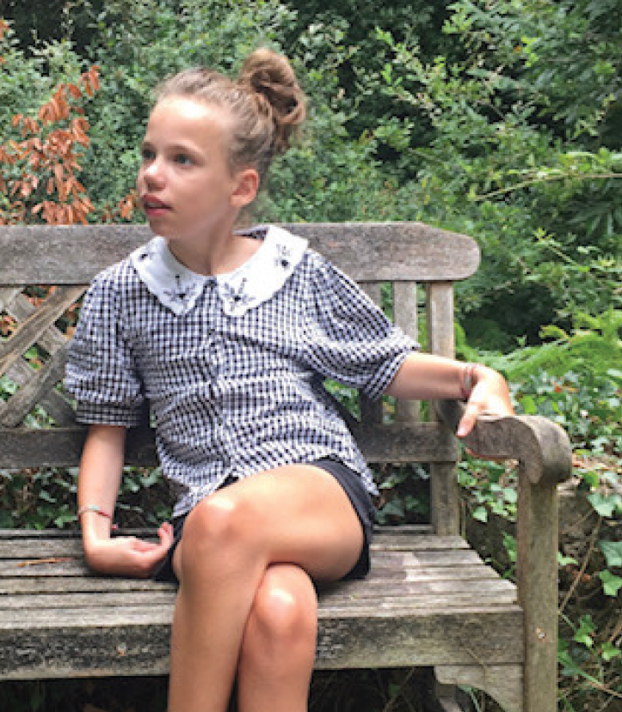
Maïa suffers today from polyhandicap. She has epileptic seizures that occur both day and night, despite the treatments she receives, and she requires constant supervision due to her total lack of autonomy. She does not speak and has great difficulties in fine motor skills. We accompany her in all daily gestures.
For several months, her father and I fight another battle, that of finding her a new medical-social establishment adapted to her needs. Most of the time, parents of children with disabilities are forced to reduce or stop their professional activity. We still work, but part-time for me.
The disease disrupts the life of the patient and the whole family.
With Maïa, we have learned to take it one day at a time. We enjoy every moment and savor every smile, every moment of joy. In spite of the difficulties encountered, Maïa is a sunny little girl full of life.
Supporting the Institut Imagine gives hope to families to find a treatment that will allow children like Maïa to “grow up” as well as possible. It is a gesture of love…

